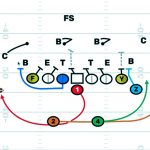In hockey, a PTO, or Professional Tryout, is a short-term contract that provides unsigned or veteran players with the opportunity to participate in a team’s training camp.
It serves as a mechanism for players without standard contracts to showcase their skills and potentially earn a spot on the team’s regular-season roster.
So, what is a PTO in hockey, the concept of PTOs adds a dynamic layer to the pre-season proceedings, allowing teams to assess players’ performance without committing to long-term agreements.
This practice is particularly prevalent in professional hockey, where the competitive nature of the sport demands a thorough evaluation of player capabilities.
During the PTO period, players strive to make a lasting impression on coaches and management, aiming to secure a more permanent position within the team.
The significance of PTOs extends beyond individual players, influencing team dynamics, fostering competition, and contributing to the overall depth and adaptability of hockey rosters.
As a pivotal aspect of player recruitment and team development, PTOs play a crucial role in shaping the landscape of professional hockey. Stay sharp.
What Is a PTO In Hockey?
In the context of hockey, PTO stands for “Professional Tryout.” A Professional Tryout contract is a temporary agreement between a player and a team, typically used during training camp.
Unsigned or veteran players who do not have a standard contract with a team may be invited to attend the team’s training camp on a PTO.
During the tryout period, the player has the opportunity to showcase their skills and impress the coaching staff.
If the player performs well and the team sees value in adding them to the roster, they may offer a standard contract, allowing the player to officially join the team for the regular season.
PTOs are often used as a way for teams to evaluate players without committing to a long-term contract. It provides both the player and the team with a chance to assess each other before making a more substantial commitment.
If the player doesn’t earn a standard contract during the tryout period, they may be released or look for opportunities with other teams.
Purpose and Benefits of PTOs in Hockey

Professional Tryout contracts (PTOs) play a crucial role in the world of hockey, serving as a mechanism for unsigned or veteran players to showcase their skills during a team’s training camp.
These short-term agreements offer both players and teams valuable opportunities. Let’s delve into the purpose and benefits of PTOs in hockey.
Player Evaluation and Team Assessment
PTOs provide teams with a chance to evaluate players in a real training camp setting.
Coaches and management get to observe the player’s performance, assessing their skills, fitness, and compatibility with the team’s playing style.
Simultaneously, players have the opportunity to showcase their talents and prove their worth to the team.
Low-Risk Player Acquisitions
For teams, offering a PTO is a low-risk approach to potential player acquisitions. It allows them to assess a player without committing to a long-term contract immediately.
This flexibility is especially beneficial when dealing with unsigned or veteran players who may not have a recent performance record or need to prove themselves after recovering from injuries.
Injury or Roster Gaps Solutions
PTOs become particularly useful when teams face unexpected situations, such as injuries or gaps in the roster. By bringing in players on a trial basis, teams can quickly address immediate needs without making hasty decisions.
It serves as a short-term solution while giving the team time to explore more permanent roster adjustments.
Motivation and Opportunity for Players
From a player’s perspective, a PTO is a motivational tool. It provides a chance for athletes to compete at the highest level, even if they are not currently signed to a team.
The opportunity to participate in an NHL training camp on a PTO can reignite a player’s career, allowing them to demonstrate their capabilities and potentially secure a standard contract.
Competition and Depth Building
PTOs contribute to fostering healthy competition within a team. When players on trial compete for roster spots, it encourages existing team members to elevate their performance.
Additionally, successful PTOs can enhance the overall depth of a team, providing alternatives and reinforcements throughout a demanding hockey season.
Who Gets Offered PTOs in Hockey?
Professional Tryout contracts (PTOs) in hockey are extended to a specific category of players who, for various reasons, find themselves without a standard contract.
Understanding who gets offered PTOs sheds light on the diverse circumstances that prompt teams to provide these opportunities.
Unsigned Veterans Seeking Comebacks
One common group offered PTOs comprises unsigned veteran players, often with substantial experience in professional hockey.
These players may have been without a contract due to factors such as age, recovery from injuries, or shifts in team dynamics.
Teams extend PTOs to provide them with a chance to prove their skills and potentially earn a spot on the roster.
Players Recovering from Injuries
Athletes recovering from injuries, especially those with a history of impactful contributions to the sport, are often offered PTOs.
Teams recognize that these players may need to demonstrate their recovery and fitness levels before committing to a standard contract.
PTOs serve as a bridge for these players to showcase their capabilities after rehabilitation.
Prospects and Young Talent
While PTOs are more commonly associated with veteran players, teams also extend these opportunities to young prospects and emerging talents.
This allows organizations to assess the potential of promising players who may not have a professional track record. PTOs offer a platform for young athletes to compete with seasoned professionals during training camps.
Players in Transition Periods
Players undergoing transitions in their careers, such as those moving between leagues or returning from international play, may be offered PTOs.
These transitional periods can create uncertainties in a player’s contractual status, making PTOs a practical option for teams to evaluate the player’s adaptability to a new environment.
Late Offseason Signings and Roster Gaps
PTOs can also be extended as a strategic move by teams during the late offseason or even during the regular season when roster gaps become apparent.
In situations where unexpected changes occur, such as retirements, trades, or injuries, teams may use PTOs to quickly fill positions and maintain roster depth.
PTOs are extended to a diverse group of players, ranging from unsigned veterans looking for comebacks to prospects and those in transitional career phases.
Impact of PTOs on Hockey Team Dynamics

Professional Tryout contracts (PTOs) in hockey not only influence individual players but also have a significant impact on the overall dynamics of a team.
Understanding how PTOs affect team dynamics provides insight into the broader implications of these temporary agreements.
Increased Competition and Intensity in Training Camps
PTOs inject a sense of competition and intensity into team training camps. As players on trial vie for roster spots, existing team members are motivated to elevate their performance to secure their positions.
This heightened competition fosters a more dynamic and spirited training environment, pushing players to showcase their best skills.
Depth and Versatility in Roster Building
PTOs contribute to the team’s overall depth and versatility. By offering opportunities to a diverse range of players, teams can assess different playing styles, strengths, and weaknesses.
Successful PTOs may result in the addition of players who bring unique attributes, enhancing the team’s ability to adapt to various game situations throughout the season.
Roster Flexibility and Adaptability
Teams utilize PTOs strategically to address immediate roster needs or uncertainties. This flexibility allows teams to adapt to unexpected changes, such as injuries or late offseason developments.
PTOs provide a temporary solution that enables teams to maintain competitiveness while evaluating the best long-term roster adjustments.
Team Chemistry and Integration
Integrating players on PTOs into the team dynamic requires effective communication and collaboration.
Coaches and team leaders play a crucial role in facilitating the smooth transition of trial players into the existing team structure.
Successful integration contributes to positive team chemistry, fostering a cohesive and supportive environment both on and off the ice.
Motivational Boost and Accountability
PTOs serve as a motivational tool for all players, reinforcing the notion that performance matters.
Existing team members understand that their positions are not guaranteed, promoting accountability and a continuous strive for improvement.
Players on trial, aware of the opportunity at stake, bring heightened motivation, contributing to a positive team culture.
The impact of PTOs on hockey team dynamics is multi-faceted.
PTOs in the Path to Professional Hockey

Professional Tryout contracts (PTOs) play a unique and crucial role in the journey of aspiring hockey players seeking entry into the professional ranks.
Examining the significance of PTOs in the path to professional hockey sheds light on how these opportunities shape the careers of emerging talents.
Gateway for Undrafted Players and Overlooked Talent
PTOs serve as a crucial gateway for undrafted players or those who may have been overlooked in previous drafts. These individuals, despite their talent, may not have secured a standard contract initially.
PTOs offer them a chance to prove themselves in a professional setting, potentially earning a spot on the roster and launching their professional hockey careers.
Bridge for Transitioning Junior Players
For young players transitioning from junior or collegiate levels to the professional stage, PTOs provide a vital bridge.
The jump to professional hockey can be challenging, and PTOs offer these players an opportunity to showcase their skills against more experienced competition during training camps.
It serves as a stepping stone in their development and adaptation to the professional game.
Showcasing Skills and Gaining Exposure
PTOs offer a platform for players to showcase their skills to a wider audience, including coaches, scouts, and team management.
This exposure is invaluable, as it allows emerging talents to demonstrate their abilities in a professional context.
Even if a PTO doesn’t lead to an immediate contract, the experience gained and exposure received can open doors to future opportunities.
Recovery and Comeback Opportunities
Players recovering from injuries or setbacks may find PTOs as a means of making a comeback.
Teams often extend these contracts to players aiming to prove their fitness and effectiveness after a period of rehabilitation.
Successfully completing a PTO can not only resurrect a player’s career but also serve as a testament to their resilience and determination.
Development and Learning from Professionals
Being on a PTO provides young players with the opportunity to learn from seasoned professionals within the organization.
They gain insights into the nuances of the professional game, training regimens, and the expectations at the highest level.
This developmental aspect is crucial for players who aspire to grow and contribute meaningfully to a professional team in the long run.
FAQs
How do players benefit from PTOs?
Players benefit by proving their abilities to teams during training camp.
Successful PTOs can lead to the offer of a standard contract, allowing them to join the team for the regular season and continue their professional hockey careers.
Are PTOs common in professional hockey?
Yes, PTOs are common in professional hockey, especially during training camps. Teams use these contracts to evaluate players without committing to long-term agreements.
It provides flexibility for both players seeking opportunities and teams managing their rosters.
Can PTOs lead to a permanent contract?
Yes, a successful PTO can lead to the offer of a permanent contract with the team.
If a player impresses during the trial period, demonstrating their skills and fits well within the team, the organization may extend a standard contract for the regular season.
What happens if a player doesn’t earn a contract after a PTO?
If a player doesn’t earn a standard contract after a PTO, they may be released from the team.
However, the experience gained during the training camp can still be valuable, and the player may explore opportunities with other teams or leagues based on their performance.
Wrapping Up
Professional Tryout contracts (PTOs) in hockey represent a dynamic pathway for unsigned and veteran players to prove their worth during training camps.
As a bridge between aspiration and opportunity, PTOs contribute not only to individual player careers but also shape the competitive landscape of professional hockey.
The intensity, competition, and adaptability fostered by PTOs underscore their vital role in team dynamics and roster building, making them a cornerstone in the journey from hopeful tryouts to established contributors in the world of hockey. Best of luck.








James Felix